Five of New York’s after-school educators are being honored today by the Partnership for After School Education at its 25th Anniversary PASEsetter awards. Each recipient has spent time, energy and creativity to help youth from underserved communities reach their full potential.
We asked each of them three questions.
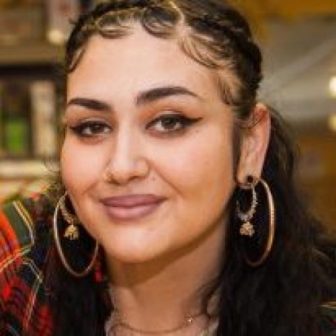
Mariam Aryai-Rivera
Mariam Aryai-Rivera is a program director at Art Start’s School’s Out New York City in the South Bronx, a food desert. She gives the youth affected by homelessness a sense of stability through art. She also encourages them to understand the importance of healthy eating by facilitating gardening workshops and transforming underused space into a garden of fruits and vegetables.
Q: What does winning this award mean to you and your organization?
A: This award means that the city we love and serve sees us and our mission and our dreams for young people and the creative process. It means our community of extracurricular educators and youth workers acknowledge that we are an agent of change.
Q: What is one method that you find most effective when working with the youth in your organization? Why?
A: We believe that the creative process with no emphasis on numbers or specific outcomes expected of our youth is vital to supporting young people’s birthright to express themselves, no matter what circumstances or socioeconomic place they’ve inherited or been placed in.
Q: What advice would you give to aspiring youth workers around the U.S.?
A: I would tell them that whoever they are, whatever neighborhood or community they are in is exactly where the work for global impact begins. There is no place like your community, and if something is missing then look no further; that’s your red light to get busy.
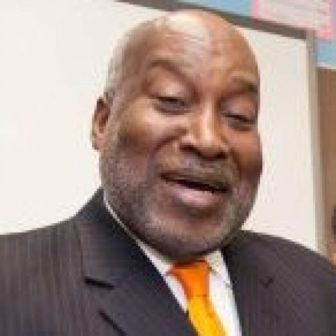
Edwin Scott
Edwin Scott is a Beacon program director for Phipps Neighborhoods. He has been with the organization since its start 25 years ago and has revitalized and re-energized it, saving it from closure and turning it into a critical community hub. He promotes leadership through educating and coaching his staff from a strengths-based perspective that is carried on and modeled for the youth in their programs. He provides a variety of activities, including robotics, STEM, chess, theater, dance and much more.
Q: What does winning this award mean to you and your organization?
A: There’s an overwhelming validation that what my organization is doing, and my efforts at promoting its vision, is successful, respected, appreciated and impactful. The striving for excellence that is pushed throughout Phipps Neighborhoods is indeed indicative of the culture and program I’ve been entrusted to establish. The Partnership for After-School Education (PASE) has remained a stalwart advocate, resource, support and indeed a friend to Phipps Neighborhoods and me (personally throughout its 25-year existence).
The honor says that there is someone who really understands youth and community development in such an insightful way that the program and its offerings literally have become the hub of the community.
Finally, the honor will serve as that inspiration for me to continue this work, especially when I get tired and weary.
Q: What is one method that you find most effective when working with the youth in your organization? Why?
A: Being real in your character; people know when you are faking it.
Q: What advice would you give to aspiring youth workers around the U.S.?
A: Things I wish someone had told me when I started:
- If you are a “clock-watcher” you’re in the wrong business. Expect long, thankless, underpaid hours, stretching beyond the 35-hour FT position you applied to.
- Keep your focus on your work scope and deliverables, but never stop reinventing your program to provide innovative activities, events and programs to achieve them. In other words, yes, we have to reach our milestones, but you don’t have to be stale in your operations.
- You don’t have the answers to everything, and guess what, that’s OK!
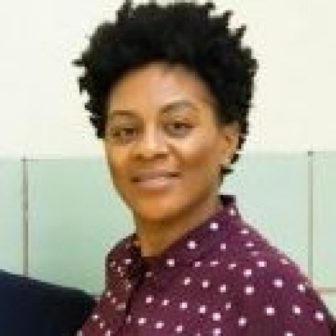
Dina Brown
Dina Brown is a program coordinator for the BronxWorks School’s Out New York City program at South Bronx Preparatory Middle School. She works to inspire students to explore a diverse range of interests and career opportunities. She formed the Love, Live, Style Youth Mentoring Program to connect young female students to young professionals through mentorship.
Q: What does winning this award mean to you and your organization?
A: This award reflects the hard work and passion that I have for youth work. I am honored to know that others acknowledge what I do and it feels great to be appreciated.
Q: What is one method that you find most effective when working with the youth in your organization? Why?
A: One method that I find most effective when working with the youth is listening. I go by the motto,”Listen to the youth.” They are very much in tune with what’s going on in their community and in the world. They have feelings, they have thoughts, ideas and solutions.I realize that most of the time the youth want to be heard. They want to express their feelings, talk about their problems and just vent. They spend most of their day listening to teachers, taking orders and being told to be quiet. Sometimes they just want to speak and want someone to listen. I open my ears to the youth and allow them to talk, talk and talk. By doing this it builds a trusting relationship and allows them to open up. This is my way of connecting with them.
Q: What advice would you give to aspiring youth workers around the U.S.?
A: I would tell aspiring youth workers to be passionate about this work because it is not easy. It may look easy but it takes a lot of hard work and dedication. Be honest, listen to the youth, be adventurous and be willing to grow with the youth.
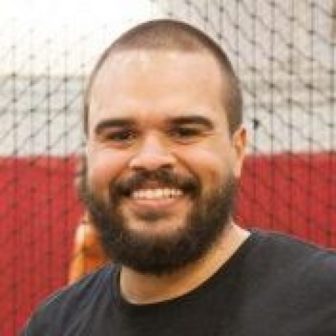
Matthew Gonzales
Matthew Gonzalez is a DreamWorks college access coordinator for DREAM: He plans college visits for high-school-aged youth, ensures they complete financial aid and scholarship applications, and serves as a positive role model. Through his efforts, the DREAM class of 2017 had a 100 percent college acceptance rate. His star softball coaching led him to represent DREAM at an international sports conference in Lyon, France.
Q: What does winning this award mean to you and your organization?
A: It has truly been an honor to be mentioned in the same breath as all of the incredible youth workers that have come before me. The best part of receiving this award was being able to read all of the wonderful things that my colleagues and youth wrote about me in the nomination package. It was a wonderful feeling to read about the impact my work has had on them.
Q: What is one method that you find most effective when working with the youth in your organization? Why?
A: At DREAM, I have had the opportunity to work with youth both on and off the field. Throughout the past five years, I have seen the power of sport in teaching youth skills and values that can be applied to all aspects of their lives.
Q: What advice would you give to aspiring youth workers around the U.S.?
A: My advice would be to model the behavior that you want to see in youth.
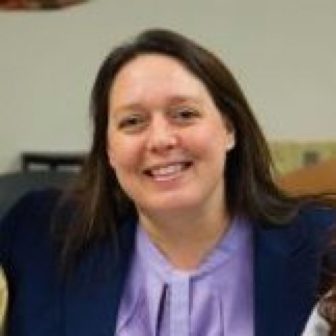
Alicia Skovera
Alicia Skovera is Fresh Air Fund’s director of camping & year-round programs at the Camp Anita Bliss Coler (Camp ABC). She has grown the camp to include girls from 9 to 16 years old and created a women’s leadership model for the 14- to 16-year-olds. She also created the Young Women’s Giving Circle, a program to train teen girls in community development, which received the Young Philanthropists of the Year Award by the Association of Fundraising Professionals in 2015.
Q: What does winning this award mean to you and your organization?
A: This award means so much to me. I feel so honored that PASE has chosen to recognize my work with youth and I’m grateful to be in the company of all the former and current PASEsetter honorees. Today The Fresh Air Fund has expanded to year-round educational programs as well as continuing our legacy summer programs. This award from PASE will help to offset some of the costs of ensuring that all our programs remain free. The Fresh Air Fund also gets to be celebrated for all the hard work that gets accomplished every day on behalf of the NYC children and families we are honored to serve.
Q: What is one method that you find most effective when working with the youth in your organization? Why?
A: When working with youth there is no one size fits all. There are, however, some golden rules that help guide our work with youth every day:
- Children come first. We ask our staff to put the needs of our children ahead of their own. This gets accomplished in many ways big and small. From sitting down to meals together and making sure every child gets served food and eats before a staff member does to not allowing distractions such as cell phones be part of the interactions between our staff and children.
- Role modeling is paramount to all that we do. There are expectations in any program that children attend — we ask our staff to follow any rule that we ask of our children. Do as I say and not as I do never works, and we make sure that all staff are modeling the behavior that we want to see in our participants.
- Kids are kids — no matter where they are from or what they may be struggling with, all children need to be loved and cared for, listened to and allowed to have fun!
Q: What advice would you give to aspiring youth workers around the U.S.?
A: My advice to aspiring youth workers is to remember the people in their own lives that positively shaped who they are today. Identify the qualities that made you look up to them and strive to give that to others. Be real and truthful to who you are as a person and children will pick up on that. Finally, you may never know how one act of kindness can shape the understanding of a young person — practice being kind as often as possible!






























